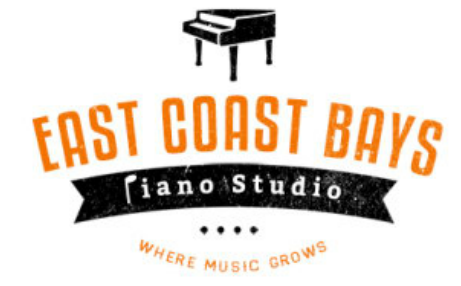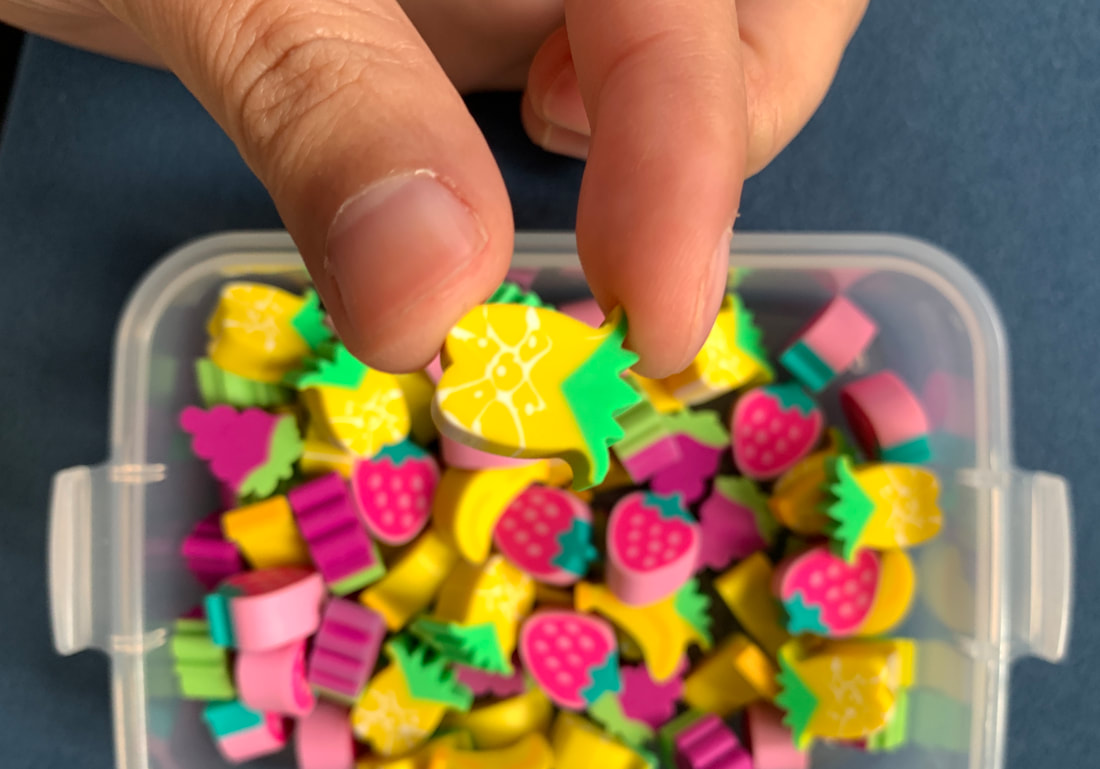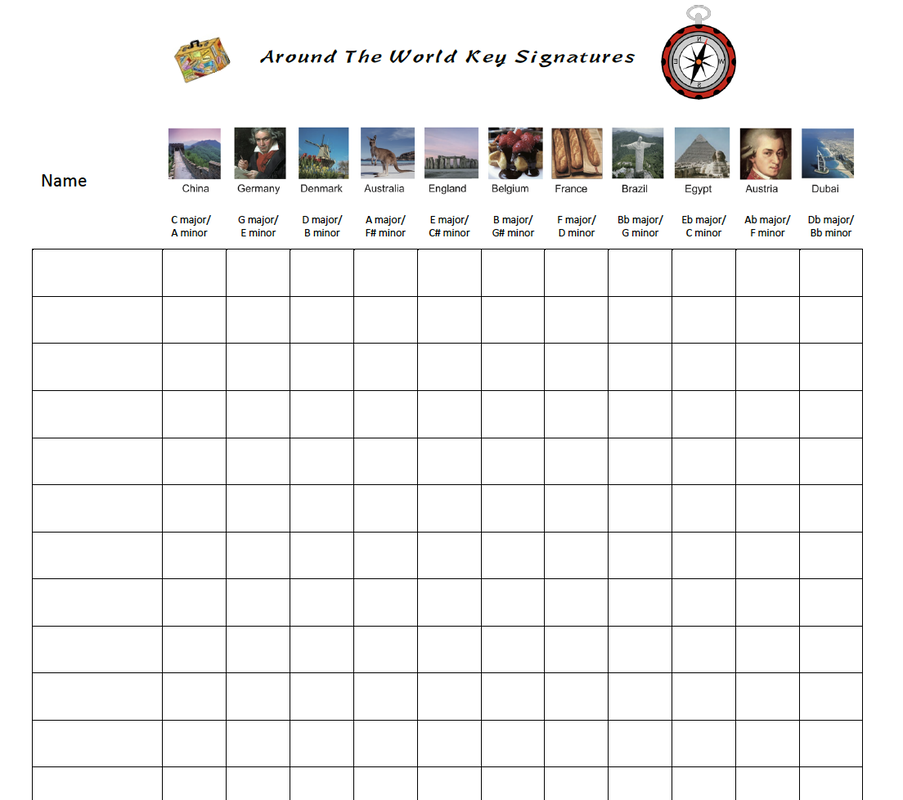|
It was an honour to be interviewed by Australian music educator, entrepreneur and author, Paul Myatt. Paul is also the director of Forte School of Music, as well as co-owner of Blackrock Music Shop.
1 Comment
Effectively using technological and hands-on tools to enhance the piano learning experience I really enjoyed presenting my interactive workshop at the APPC. I was delighted to be given an opportunity to talk about something I am really passionate about - that is gamifying teaching and learning in the piano lessons. So how did I get so interested in games in the piano lesson? Well, I first started playing the piano at around about 3 years old. Thinking back to my first few years of piano learning as a preschooler, I was lucky enough to have my grandmother as my first piano teacher, and I remember I just loved practicing everyday. My grandmother had never formally studied the piano or any kind of educational pedagogy, but she clearly knew that play, fun and discovery based learning is how to entice a young child to love playing and learning the piano! Her ways of gamifying learning eventually became a big influence on my own teaching today, as I strive to harness the obsession kids have with games and use it to my advantage as a piano teacher. I was really excited to be able to share some of these games with my audiences, but because we had very limited time, I could only demonstrate one or two games on how each of the following aspects of piano playing could be gamified:
And of course, how could I not mention Note Rush! I use Note Rush all the time in my teaching, and I love the fact I can customise the notes I would like my students to practice each week. I also use the app to train for sight singing and relative pitch skills in my students. Here's a video of what I got the whole room of piano teachers to do: Thanks to the awesome creator of Note Rush, APPC delegates can get a free Studio Licence of the Dinosaurs theme! (requires purchase of Note Rush to redeem). Go to www.noterush.app/appc to redeem! This is for a limited time only.
Studio wide challenges: I also mentioned a couple of my studio-wide challenges. I have written about these previously on my blog: Student of the Week Polaroid Challenge, and Around The World Scales Race. Teaching Italian Terms and Expressions: I wanted to give everyone at my session a quick taste of how entertaining learning aspects of music theory could be. Traditionally when we teach Italian terms and expressions, we might give students a list of words they have to learn by the next lesson and we test on them on it. However, for such a theatrical and expressive language, there are many better ways of learning it! One of my favourite ways of doing so is to play a game of charades with students. For example here we have a list of Italian terms. I got two volunteers to come up act out one of these words to give clues, and the audience had to yell out the correct answer as fast as possible. Here's our entertaining clip from my talk: To conclude... I think I have scratched the surface of what we can do with games in the lessons during my talk. I believe pretty much any element of piano teaching can be gamified to some extend. As the famous nanny Mary Poppins once said: “in every job there must be done, there is an element of fun!”
What I hope I also demonstrated is that when games are used correctly as an educational tool, it has the benefit of giving instant feedback to the student in a fun and non threatening way. It allows us to extend our teaching beyond the studio and yet still have a role in designing and activating learning. And for me an unexpected positive outcome is that it gave me a chance to show our kids how relevant classical music can be in their modern lives, because as teachers we should never cease to think of ways to connect our students to their music every day. After a wonderful summer break, I am guessing most of us are going back to teaching this week. I have been really looking forward to seeing all my students again, which must be a sign that I enjoyed a rejuvenating holiday! What I love about this time of the year is that every student comes through the door with a renewed enthusiasm for learning, and the delight of seeing them standing a smoot higher than the previous year! The beginning of a new year is also a good time to establish a routine to encourage the practice of some of the “less popular” (or indeed, least popular) aspects of piano learning. I’m talking about scales. Arpeggios. Broken Chords. Sight reading. Theory. As I imagined myself repeating the above elements to my students, I pictured the smiles on their faces fading away, and their newly-gained stature starting to deflate. Those are not the words most students want to hear on their first lesson back. We have to find a more engaging way to get students to master these components of piano learning without them pouting over it! A little studio challenge I am setting up for all my students this term is the “Around the World Key Signature Challenge”. I have done this a few times throughout the years already, and this is what the “challenge” looks like: Objective of the challenge: The first student who collects a stamp for all 11 countries wins the grand prize, and every other student who collects a stamp for all 11 countries by the end of term wins a small prize. Learning goal: To explore different key signatures through sightreading and scales. Duration: Term one (Feb- April) Cost: Printing of the Around the World Chart, prizes at your own discretion (I recommend Easter Eggs!) And here is how the conversation usually goes... “Let’s have a look at this term’s studio challenge! What you want to do, is to try and visit all of these countries and collect a stamp for each of them by the end of this term. The first student to collect all of the stamps wins the race and gets the grand prize from me, and everyone else that has all of the countries stamped by the end of this term will get a small mystery gift from me.” If you get this kind of response from your student, you know you have them “hooked”. It is then time to lay down the terms and conditions: To earn a stamp for a country, a student has to complete a series of tasks for its correlated key signature. Depending on the level of the student, I will differ the tasks to reinforce pre-existing knowledge and skills, as well as nudging them a small step forward to stimulate their learning. I would recommend teachers adjust the requirements for each student slightly each week to optimise the learning experience, but here I have included some examples of what I might do for the different levels: Beginners
Grade 1-2
Grade 3-5
Grade 6-8
I tend to be flexible and alter the weekly task for each student, adding, subtracting or swapping activities depending on how much a particular student can process in a week. A good rule of thumb is that if this assignment takes more than 1/4 of a student’s daily practice routine for them to accomplish then chances are, they are going to be put off rather than encouraged to explore these keys. So, for a grade 3 student who practices 40 minutes a day, I may include Noterush, a natural minor scale, and blocked chords. But for a grade 8 student who practices an hour a day, I might include Noterush, sightreading, chromatic scales a third a part, and a contrary motion arpeggio. It is important to find the balance - we want a student to feel like they are slightly challenged, but they still believe they can succeed and get that stamp by the following week. So, it is crucial to adjust the “difficulty” setting for each student. I have done this challenge a few times in the past years, and although not every single student would finish the race, it really does benefit the majority of students in my studio. Last year there were 9 students out of 35 in the studio who ended up learning 12 keys or more in 10 weeks' time as a result of it. It was also the only time I got asked by students if they could do more than one scale that week because they really want to “win the race”! I always think if such challenges get even one student excited about learning more key signatures, then it is well worth the effort. Happy teaching! Melody |
AuthorThis blog post is by Melody Deng Archives
September 2020
Categories
All
|
|
©2019 East Coast Bays Piano Studio | All Rights Reserved
|




 RSS Feed
RSS Feed